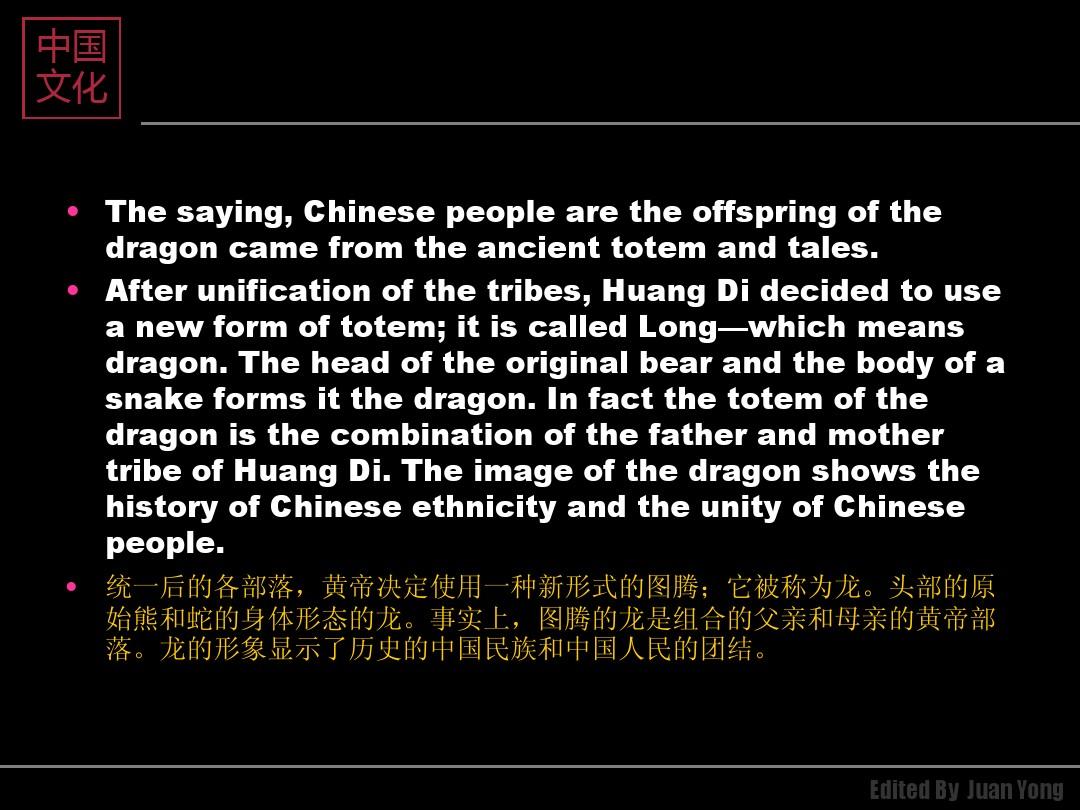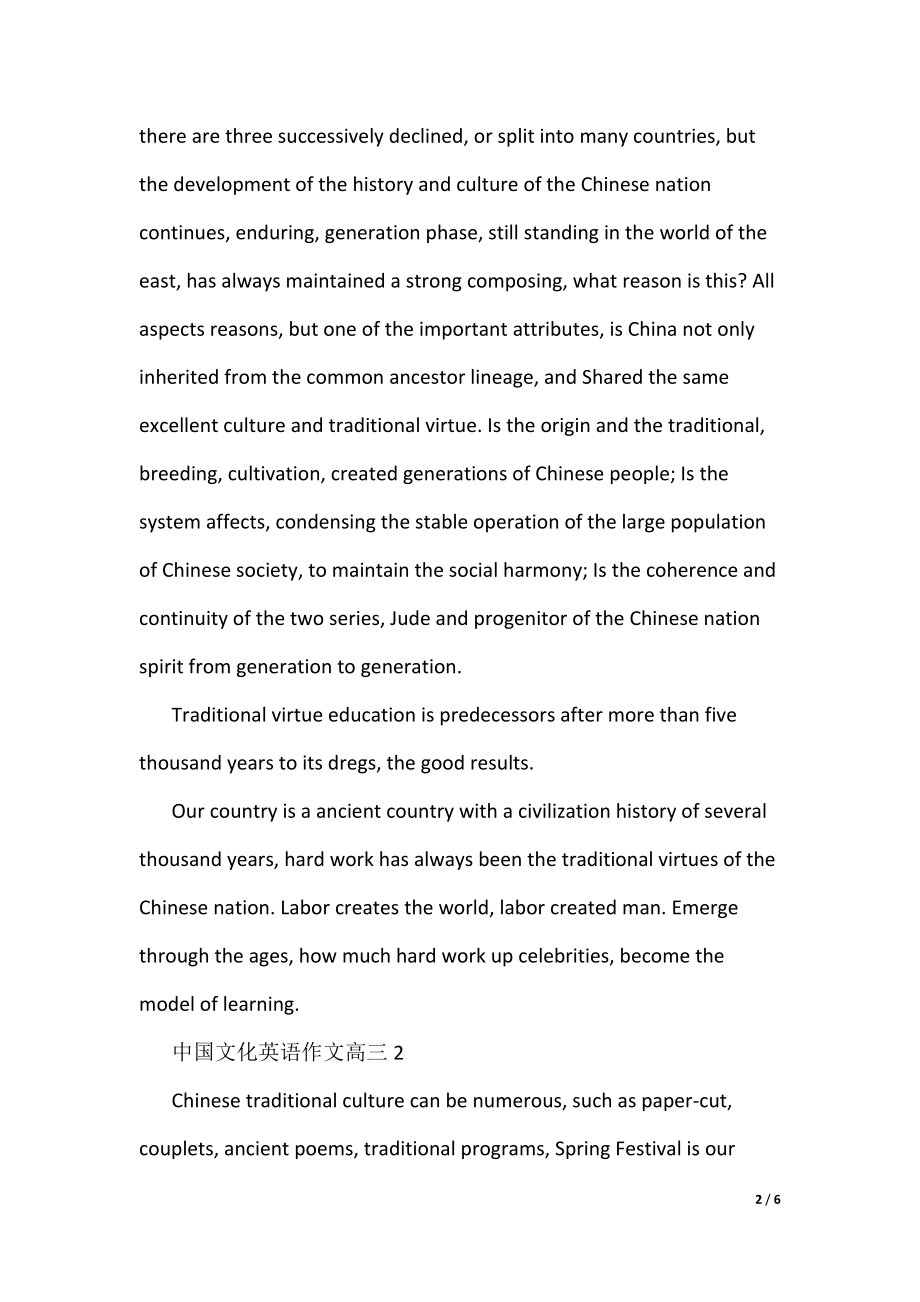摘要:本文简要概述了中国文化的发展历程。从古代文明的起源开始,探讨了传统文化如儒家思想、道家哲学和佛教的影响。文章还提到了现代中国文化的发展,包括科技、艺术和教育等领域的进步。通过深入了解中国文化的演变,可以更好地理解其历史背景、核心价值观和社会变迁。
Chinese culture, enriched with thousands of years of history and tradition, has evolved significantly over time. This essay aims to provide a concise overview of the development of Chinese culture in its historical context.
Prehistoric and Ancient Times: The Origin of Chinese Culture
Chinese culture can be traced back to the Neolithic Age, with the emergence of primitive settlements and agricultural practices. The Xia, Shang, and Zhou dynasties marked significant advancements in art, literature, philosophy, and politics. The Zhou dynasty's emphasis on rites and rituals formed the foundation of traditional Chinese values and ethics.
Classical Age: The Flourishing of Cultural Achievements
The Han dynasty witnessed a flourishing of Chinese culture, with significant advancements in literature, history, philosophy, and art. The Confucianism philosophy, which emphasized morality and social harmony, became the dominant ideology. The Silk Road opened up new avenues for cultural exchanges with other civilizations.
The Tang dynasty (618-907 AD) marked a golden age in Chinese history, with remarkable advancements in poetry, art, music, and architecture. Cultural exchanges with Central Asia and India further enriched the cultural landscape.
The Song dynasty (960-1279 AD) witnessed remarkable advancements in literature, art, music, and technology. The Song dynasty also saw the flourishing of various schools of thought such as Neo-Taoism and Buddhism.
Modern Times: Evolution and Renewal of Chinese Culture
The modern era has witnessed significant changes in Chinese culture due to political shifts, economic development, and globalization. The past century has seen the rise of modernization and urbanization, leading to the blending of traditional and modern elements in Chinese culture.
The Cultural Revolution (1966-1976) was a significant turning point in Chinese history that aimed to promote revolutionary changes in cultural practices and values. Although it caused some damage to traditional cultural heritage, it also spurred the emergence of new cultural forms and expressions.
In recent decades, China has undergone rapid economic growth and urbanization, leading to the emergence of contemporary Chinese culture with a blend of traditional and modern elements. The revival of interest in traditional culture, such as calligraphy, traditional crafts, and music, alongside the influence of globalization and Western culture, has created a unique cultural landscape in China.
Conclusion: The Future of Chinese Culture
Chinese culture has a rich history that dates back thousands of years. It has constantly evolved and adapted to changing times while retaining its core values and traditions. The modern era presents new challenges and opportunities for the development of Chinese culture. As China continues to grow economically and culturally, it will be crucial to strike a balance between preserving traditional values and embracing modernization. The future of Chinese culture lies in the integration of traditional and modern elements, leading to a vibrant cultural landscape that continues to evolve and flourish.



 鲁ICP备17023353号-2
鲁ICP备17023353号-2
还没有评论,来说两句吧...